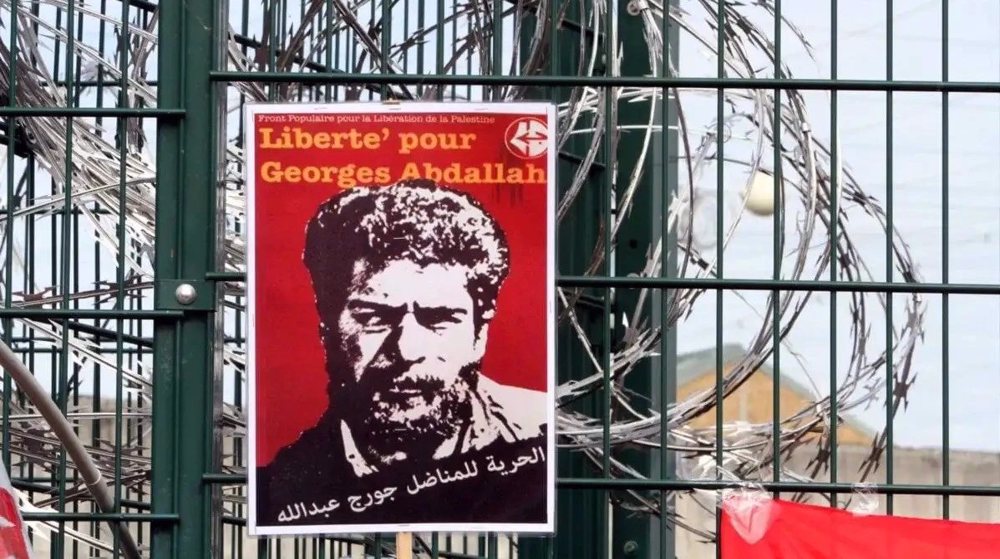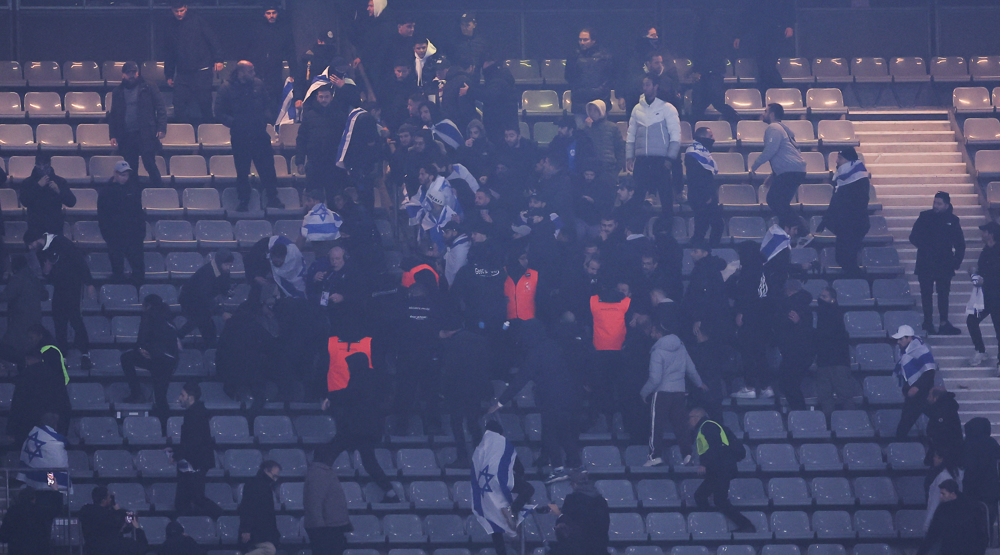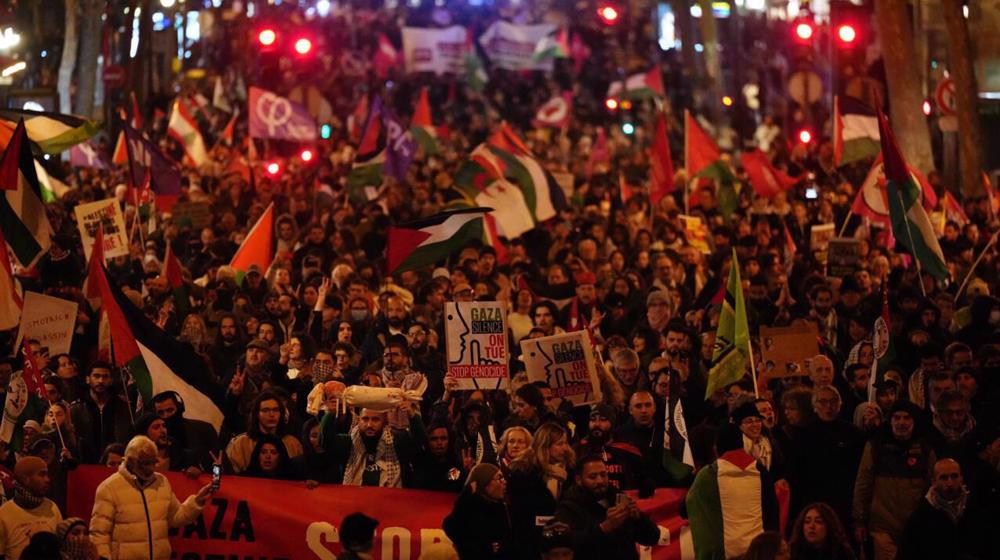Paris attacks mastermind killed in police raid: Prosecutors
The suspected Belgian mastermind of the recent terrorist attacks in Paris has been identified among the dead in Wednesday's police swoop in Saint-Denis commune, the Paris prosecutor's office says.
"Abdel Hamid Abaaoud has just been formally identified, after comparing fingerprints, as having been killed during the (police) raid [north of Paris]," the office said in a statement on Thursday.
"It was the body we had discovered in the building, riddled with bullets," it said.
French officials had accused the 28-year-old Abaaoud of orchestrating Friday’s coordinated bombings and shootings which killed over 130.
It was initially thought that Abaaoud was in Syria, but further investigations revealed that he was based in the Paris suburb of Saint-Denis. The Belgian militant had boasted of representing Daesh Takfiri group and mounting attacks in Europe.
Heavily armed police forces launched a raid before dawn on Wednesday to arrest the militant. The seven-hour shootout and siege led to the killing of two people in an apartment in Saint Denis, one of them a woman who allegedly killed herself before police commandos managed to break into the house.
The prosecutor had said that the other body was so riddled with bullets that it was difficult to identify him.
'France had received no intelligence on Abaaoud's arrival'

Meanwhile, speaking to reporters, French Interior Minister Bernard Cazeneuve said that Abaaoud had been implicated in four of six foiled attacks in France this year.
"Six attacks were avoided or foiled by the French services since spring 2015. Abaaoud was implicated in four of them," Cazeneuve said shortly after the conformation of the death of the Takfiri terrorist by the prosecutors' office.
He added that France had received "no information" from other European countries on the arrival of the Daesh ringleader in Europe until three days after the Paris attacks.
"No information coming from European countries, where he could have transited before arriving in France, was given to us," Cazeneuve said
"It was only on Nov. 16, after the Paris attacks, that an intelligence service outside Europe signaled that he had been aware of his presence in Greece."
"Everyone must understand it is urgent that Europe wakes up, organizes itself and defends itself against the terrorist threat," Cazeneuve stressed.
State of emergency extended
Also on Thursday, the French National Assembly voted to extend the state of emergency for three months following the Paris massacre.
The government initially imposed the state of emergency on Saturday, empowering police to search and detain suspects.
The measure will be put to vote in the French Senate on Friday.
Under the extended state of emergency, the French government will be given the authority to clamp down on websites that promote radicalism. The lawmakers on Thursday allowed the government to monitor the press, media and the Internet during the three-month period.
The social networking websites, including encrypted messaging app Telegram, which Daesh members allegedly used to organize their recent attacks in Paris, will be the focus of the new online restrictions.
This is the first time the French Interior Ministry taps into such emergency-related privileges since they were updated in the 1950s, during the Algerian war.

Also under new security measures, police officers in France will be allowed to carry weapons when they are off-duty. They are also required to wear a police armband to be identified.
Earlier in the day, French Prime Minister Manuel Valls said his country could risk chemical or biological warfare in its fight against the Daesh.
Following the Paris attacks, French President Francois Hollande pledged to intensify its contribution to a US-led coalition that is carrying out an aerial campaign against purported Daesh positions in Syria.
Israeli strikes kill 88 Palestinians in northern Gaza
American voters plainly rejected complicity in Gaza genocide: Iran FM spox
ICC should issue more arrest warrants for Israeli authorities over Gaza genocide: UN expert
Israel using AI weapons co-produced by India in Gaza genocide: Report
Israel issues new evacuation orders, shortly launches strikes on southern Lebanon
VIDEO | Press TV's news headlines
From Iraq to Gaza: The great disconnect between British people and rulers
Syria condemns Israel's killing of 36 in 'horrific' strike on Palmyra















 This makes it easy to access the Press TV website
This makes it easy to access the Press TV website